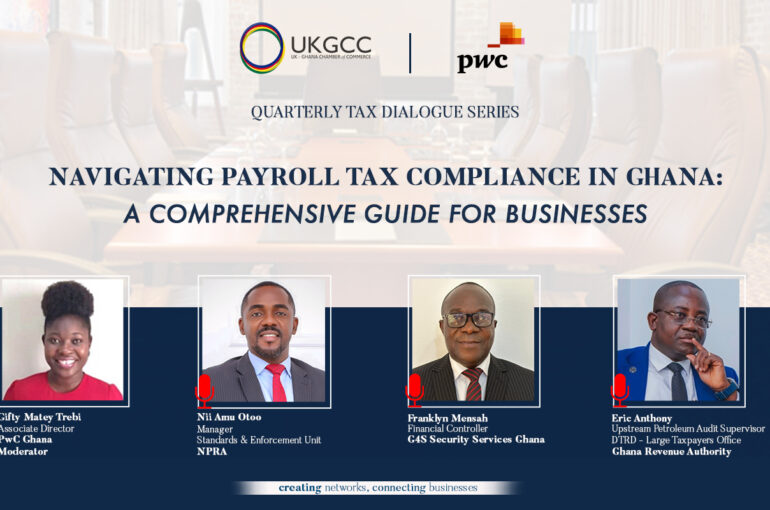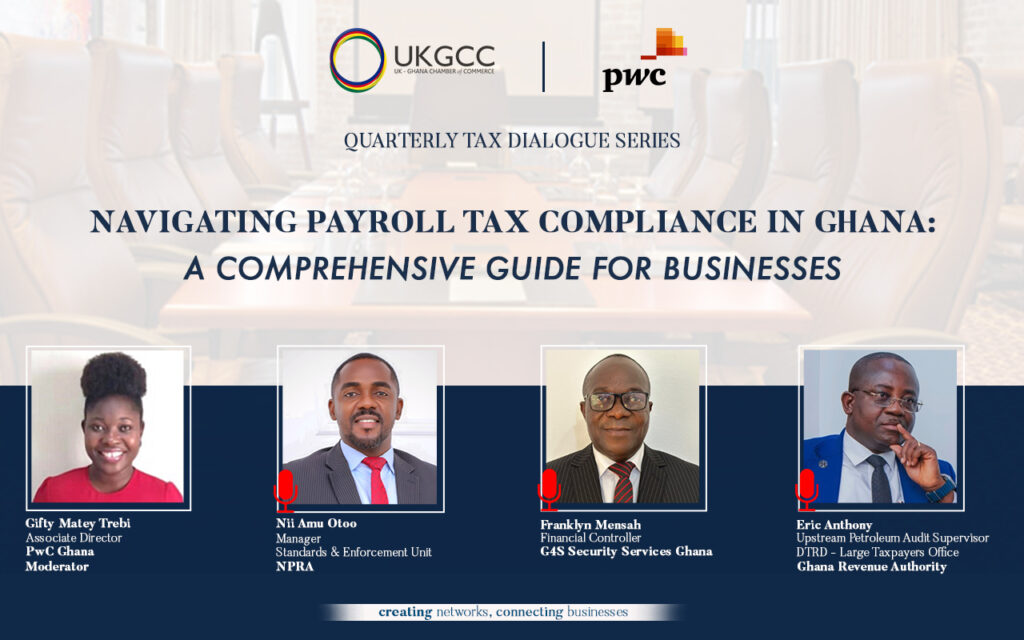Employees must file annual income tax returns – Ghana Revenue Authority
Employees must file annual income tax returns – Ghana Revenue Authority


Eric Anthony, Supervisor (Chief Revenue Officer) for Upstream Petroleum Audit at the Large Taxpayers Office of the Ghana Revenue Authority’s (GRA) Domestic Tax Revenue Division, has shared that employees in Ghana are expected to file annual income tax returns with the GRA by 30th April every year.
“Previously under Section 125 of Act 896, employees were not expected to file their own returns but per amendment 924, they are now required to file their annual income tax returns four months after the end of the basis period which falls on 31st December for all employees.
And by Regulation 12 of L.I. 2244, the employer rather has to file an Employer’s Annual Tax Deduction Schedule which specifies the amount of monthly Pay As You Earn (PAYE) tax payments that they have made in respect of each employee, the Tax Payer Identification Number and names of employees involved, and the amount of salaries and other employment benefits paid, among others, with the Commissioner General.”
PAYE tax is a tax deducted from an employee’s total income from employment and paid by an employer on behalf of the employee. The tax is charged on the total income of an individual in employment, whether it is received in cash or in kind, whether received directly by the employee or indirectly on his/her behalf, and whether paid in respect of past, present and prospective (future) employment. Monthly PAYE returns must be filed and the appropriate PAYE taxes paid by the employer in respect of their employees, whether casual, part time or permanent, on or before the fifteenth day of the month following the month in which the deduction was made.
“So, in terms of the monthly filing of PAYE taxes, that is the responsibility of the employer but the filing of the annual personal income tax returns is the responsibility of the employee”, Mr. Anthony explained during a UK-Ghana Chamber of Commerce and PwC Ghana’s webinar on “Navigating Payroll Tax Compliance in Ghana: A Comprehensive Guide for Businesses”.
Another panellist on the webinar, Mr. Nii Amu Otoo, the Head of the Standards & Enforcement Unit at the National Pensions Regulatory Authority (NPRA) of Ghana, added that it is the onus of the employer to pay their employees’ pensions contributions on the 14th of every month.
“If you fail to make those contributions, you incur a surcharge of 3% of the contribution you should have paid for the month, which compounds until payment is made.
If NPRA is unable to recover those monies from you, you will be charged and served at court to pay the contribution plus surcharge, in addition to a penalty as stipulated by the law. The penalty is up to 2,000 penalty units which converts to GHS24,000 for each month you default,’ Mr. Otoo remarked.
Employment Income Tax in Ghana
According to Mr. Anthony, income from employment is one of 3 sources of income taxed in Ghana.
Per the Income Tax Act, 2015 (Act 896) and Regulation 3 of the Income Tax Regulation, 2016 (L.I. 2244), the GRA requires employers to withhold appropriate taxes from qualifying cash payments made to an employee during a year of assessment (1st January – 31st December) to meet the employment tax liability of that employee for that year.
The qualifying cash payments include salary, wages, leave pay, fees, commissions, and gratuities.
While other forms of employment income such as overtime, bonus, official accommodation, and official motor vehicle (for private use) benefits are also taxable, there are other income from employment which are not to be included in the determination of PAYE taxes. These include any reimbursement of an expense incurred by an individual on behalf of the employer of that individual that serves the proper business purposes of the employer. Employment income subject to final withholding payment, redundancy pay, such a discharge or payment or reimbursement of medical, dental and health insurance expense or benefits on equal terms, are also not included in calculating employment income for PAYE taxes.
Tier 1, 2 and 3 contributions put together not exceeding 35% of employee’s basic salary is a benefit which is also exempt from tax. A withdrawal of Income from a personal pension fund investments before the statutory retirement age is also an income from employment exempt from tax, if the employee withdraws as a result of loss of permanent employment due to COVID 19.
Complying with Ghana’s Payroll Taxes
Mr. Anthony admitted that “Tax, much as I appreciate that it’s a difficult thing, is also the price we pay to live in a civilised society. So, it is important that we take our tax matters seriously”.
He urged all taxpayers to reach out to the GRA either at their offices or online, whenever they face challenges complying with tax laws.
“It is important to note that when you are tax compliant, you avoid every potential penalty or interest, and in the unlikely event, you avoid prosecution as well”
Mr. Franklyn Mensah, Finance Director (Ag) at G4S Security Services (Gh) LTD. and webinar panellist, also urged businesses to seek professional guidance to ensure that the tax rates being implemented in organisations are aligned with Ghana’s tax legislation.
“Once in a year, businesses can consult their tax professionals to perform a health check on the payroll taxes. This gives you an alert, early on, on problem areas that you need to focus on. The tax professionals can also make recommendations on how you can improve your systems to avoid any tax liabilities.
Remember, the least time that you waste can lead to fines and penalties. We need to act promptly”, Mr. Mensah cautioned.
The webinar, moderated by Gifty Matey Trebi, an Associate Director at PwC Ghana, also explored taxation of other forms of incomes from employment such use of domestic servants, income tax rates, and Ghana’s 3-Tier pension scheme.
Watch the webinar here https://youtu.be/gjvlRSjHukw



